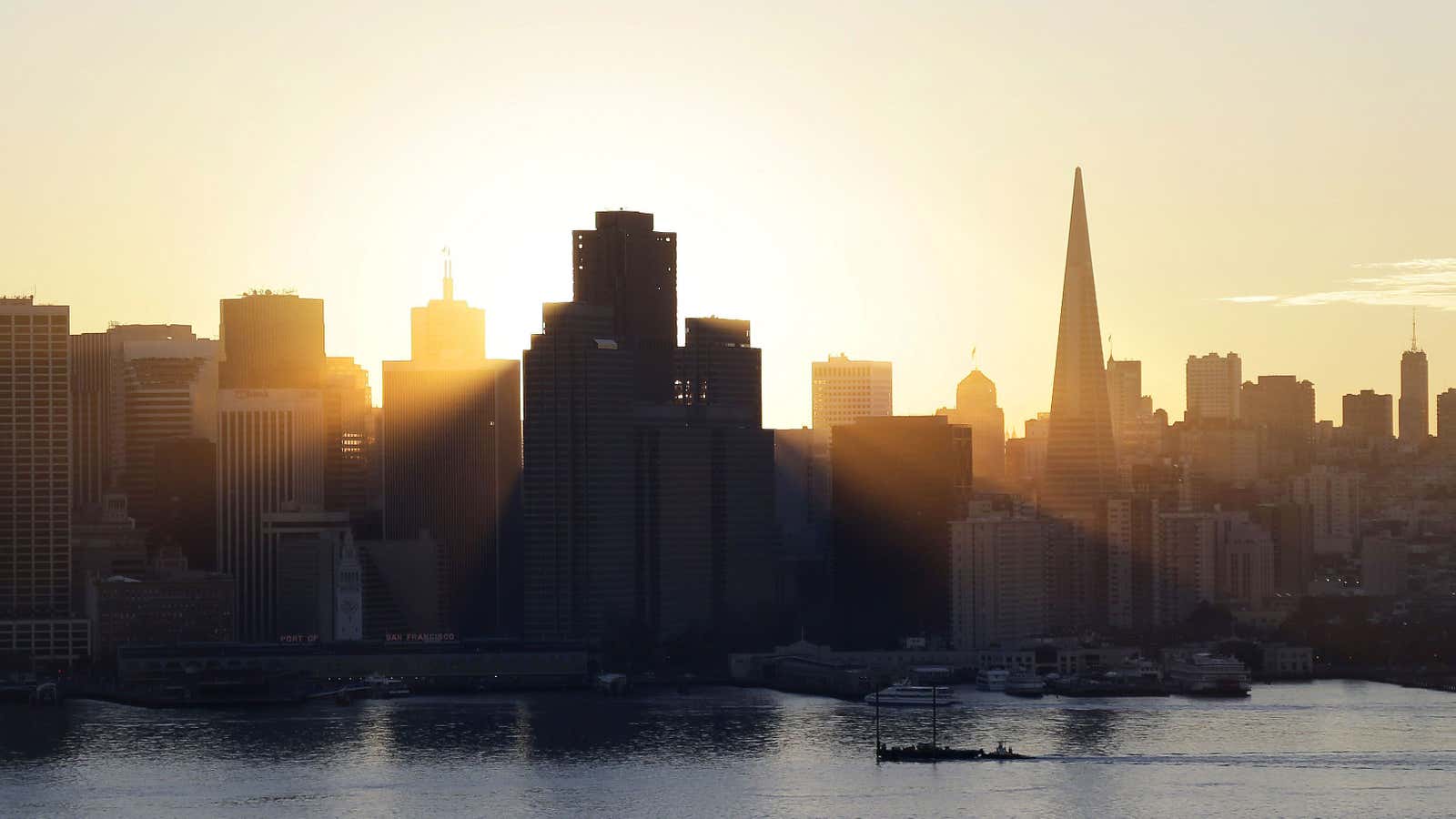The solar power industry is about to get a big boost in San Francisco. On April 19, the city’s Board of Supervisors voted unanimously to become the first major US metropolitan area requiring that new buildings install solar photovoltaic (PV) panels on their roofs.
California already mandates that new buildings with 10 floors or less designate at least 15% of their rooftop area (pdf, p8) as being ready for solar panel installation. The city of San Francisco now requires that builders actually install solar panels in these areas (at a minimum) starting in 2017. Larger buildings are exempt for now.
The Better Roofs Ordinance, introduced by supervisor Scott Wiener, is expected to add 50,000 solar panels and avert 26.3 million tons of carbon dioxide annually—equivalent to emissions from 5,000 cars driven for a year—just based on construction already in the pipeline, according to the bill’s supporters.
Only two other US cities, Lancaster and Sebastopol, both in California, have similar laws on the books. New York is considering mandatory installation of PV on some of its 4,000 municipal buildings.
Wiener has promised follow-up legislation allowing for “living roofs” in lieu of solar panels. “Living roofs, like the one on the roof of the California Academy of Sciences in Golden Gate Park, provide insulation, reduce stormwater from entering the sewer, enhance biodiversity and habitat, sequester carbon, and capture pollution,” he said in a statement on his website.
San Francisco’s ultimate goal is to power itself with 100% renewable energy. The city has pooled residents’ and businesses’ electricity demand to purchase bulk renewable energy from solar, wind, bioenergy, geothermal, and hydroelectric sources at competitive rates. San Francisco customers are now automatically added to the CleanPowerSF program, although they can opt out.
The utilities commission estimates the average San Francisco homeowner is paying less than Pacific Gas and Electric’s standard rates for greener power, and only $6 more per month for those who request a 100% renewable mix.
